Recently, Young NTUC Crossroads invited experienced runners, Dr Derek Li and Mr Lim Nghee Huat, for a panel discussion at the NTUC Centre.
A network to inspire youths, Young NTUC Crossroads regularly invites inspiring people who have overcome the odds in their chosen fields to get to where they are today, to share their life experiences and learning journeys.
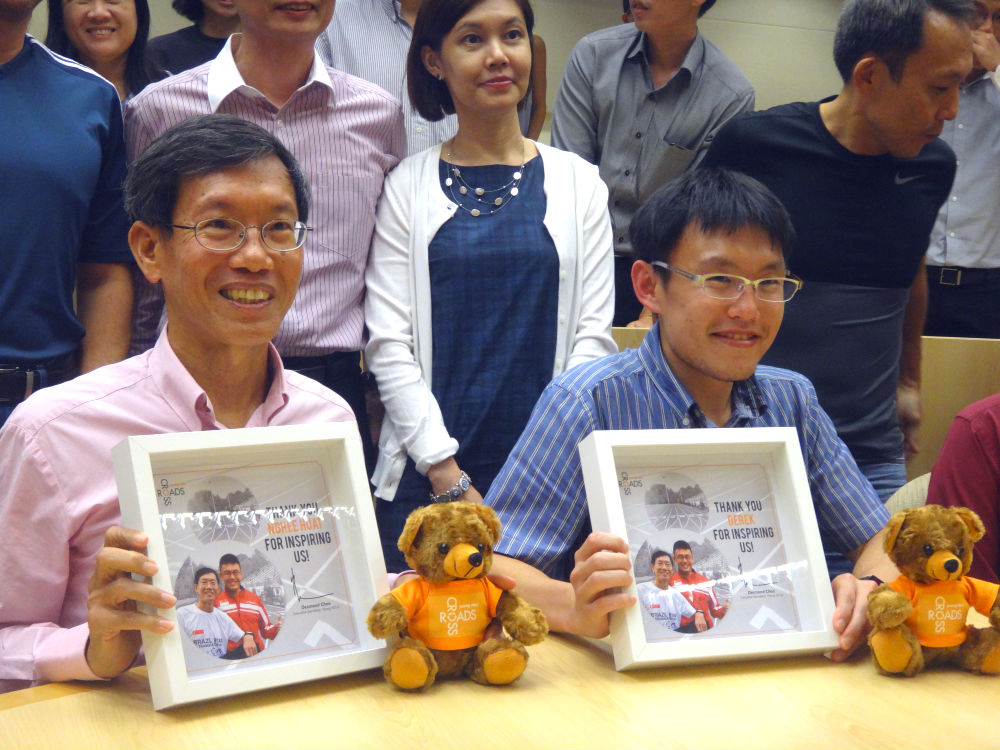
Mr Lim Nghee Huat (left) and Dr Derek Li (right).
Li is one of Singapore’s top runners
Li, a General Practitioner with the Raffles Medical Group, is one of Singapore’s top distance runners – and one of the few Singaporeans with a marathon personal best of less than three hours. However, Li had never imagined himself as a competitive runner when he had started the sport – in fact, he had taken up running purely to go for the IPPT Gold Standard. And then upon reaching this goal, Li realised that he was hooked onto running. Things then progressed for him very quickly – from there.
Besides running, Li is also into triathlons – because according to the doctor, the swimming and cycling segments give him a good break from running and also puts less strain on his joints. And he has chalked up several age group podium victories throughout his triathlon journey.
Lim is an experienced ultra runner
For Lim, an avid runner and triathlete, he has been running since his Army days and he regularly takes part in extreme ultra races such as the Brazil Ultra Marathon (135 miles/217km) which he has completed several times to date as well as the Kona Ironman in Hawaii. He also famously ran 2,500km in 50 days earlier this year – to make Singapore’s SG50 Golden Jubilee. His biggest ever endurance event though, according to him, was the BadWater Ultra Marathon, the World’s Toughest FootRace, in 2013.
BadWater Ultra Marathon
Said Lim, “The race takes place at Death Valley, the Lowest Point in America. It is the hottest place on Earth and the event takes place during the hottest month, in July – where temperatures can easily overshoot 50 degrees Celsius.”
The qualifying criteria for the BadWater Ultra Marathon race is very stringent, with only the best applicants being invited to take part annually. Many runners each year fail to complete the race – including experienced ultra runners. For example, even the potential champion for this year’s edition had hit the wall and called it a day… when he had an enormous lead, with about 18km left to go.
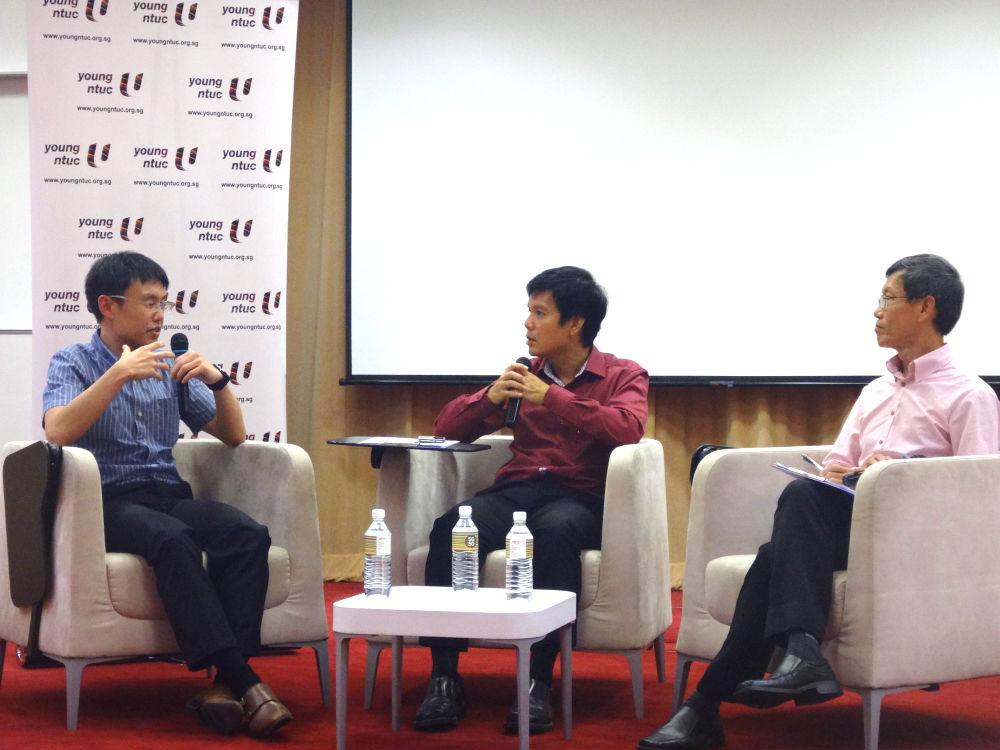
Panel discussion in full swing.
For such collapses during running, Li points out that this can happen for a variety of reasons. These include electrolytes and salt losses and dehydration – which is about losing more water than what the body is able to handle. Continued Li, “Also muscle fatigue leads to collapse – which is due to a lack of training or overstimulation of the muscles. When we race, we run at an intensity that the body is not used to, during training. Normally you push harder in a race than in training and if your body cannot maintain that intensity, then you will cramp and hit the wall.”
Downhill running, according to Li, can also lead to such cramps. He said, “Running downhill causes the leg to length but at the same time, contract at the point of impact. This causes muscle damage and affects the running.”
Continued Li, “But still, what the runners face at BadWater is unique – seldom would you experience extreme heat like that for 40 to 50 hours straight – so I have no idea of the pain that runners undergo, to complete this race!”
Their running inspirations
While these runners may have impressed and inspired many people with their running feats and endurance, what inspires them personally?
Said Li, “I did not have an athlete that I looked up to but I have been inspired by people I have trained with, during my early days of triathlons.” These include everyday folks, who have family commitments and young children to take care of – but they are dedicated enough to wake up at 4am in the mornings to prepare and train for for an Ironman competition.
Added Li, “The way they exercise on top of their family commitments and busy schedules really inspired me and that helps me to manage my time well.”
Time management is important for him
For Lim, time management is especially important – as he works 12-hour days. Yet he still finds enough time to engage in his passion for running. How does he do it? Said Lim, “I go running after people sleep and that is how I squeeze in time to train. I do one run in the weekdays, about 10-20kms and another on weekends, about 50-80kms. That is how I manage my time. If I have to cut down on a couple of hours sleep to run, I will do that.”
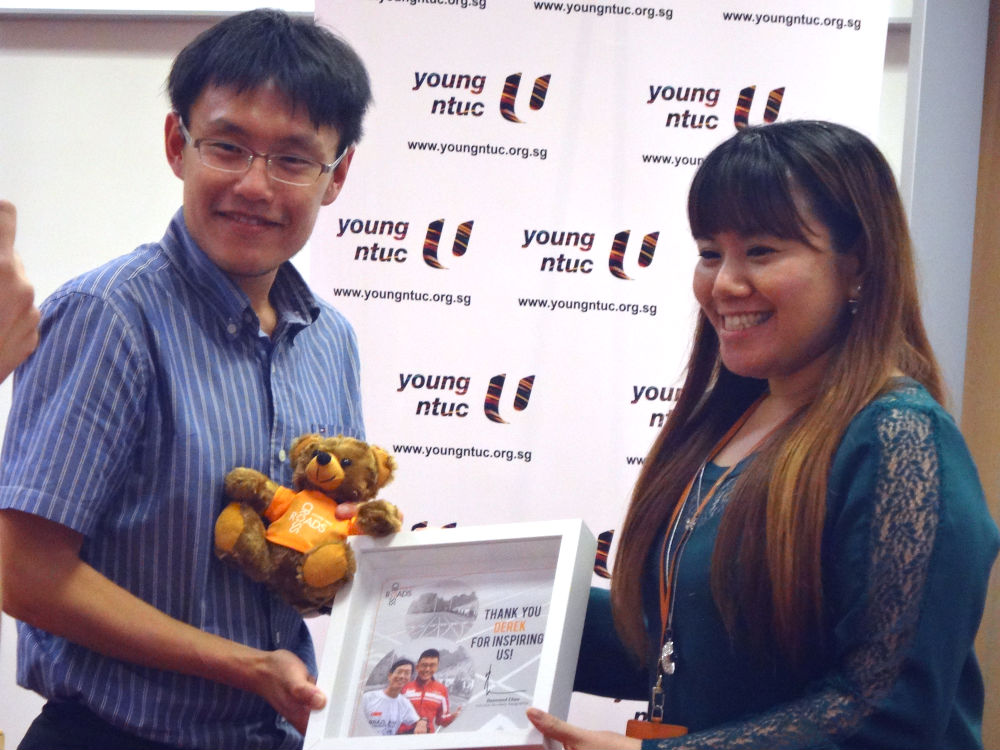
There’s a token of appreciation for Li as well.
Li adds though, that Lim’s way of training for his running races is very unorthodox. For himself, he would run about 120kms per week when he is training for a full marathon and will do this for about six to seven days a week.
Running and health and joints
But is piling on so much running mileages good for the health and the joints? Said Li, “I don’t think that anyone has claimed that marathon or ultra running is good for the health. But on the other hand, there has been no proven link or medical research that running such distances is harmful to the body either.”
Added Lim, “People discourage me to run ultras because they say it is had for the body. But I believe that with proper rest and if you look after yourself and listen to your body at all times, then it should do no harm to the body.”
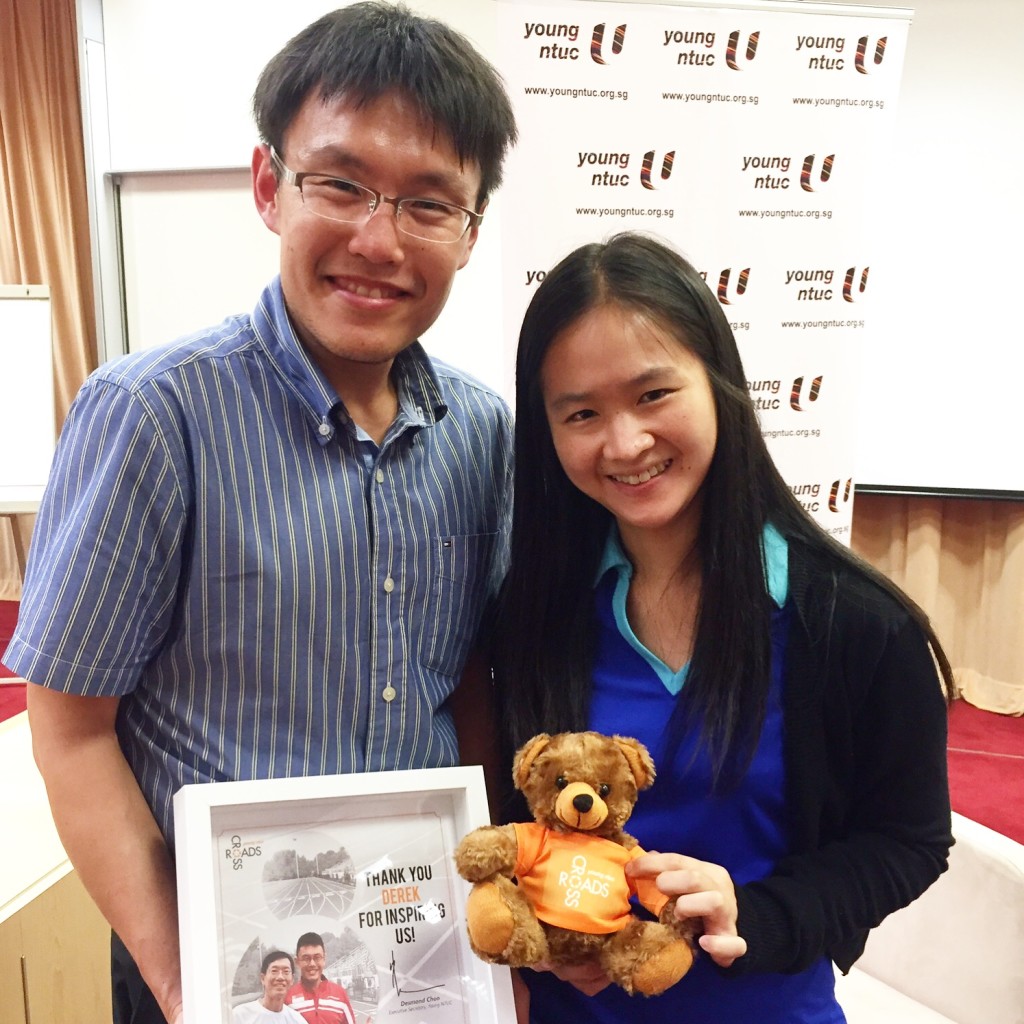
With Dr Li.
Lim also added that precautions could be taken though, such as taking Glucosamine tablets, as well as wearing the right running shoes and warming up and cooling down before and after exercise sessions.
Injuries
Regarding injuries, Li pointed out that there is a difference between running specific and intensity specific injuries and that these tend to be mixed up. He explained, “Intensity related ones would be Tendonitis and Plantar Fasciitis and mileage-related injuries would be primarily stress fractures.”
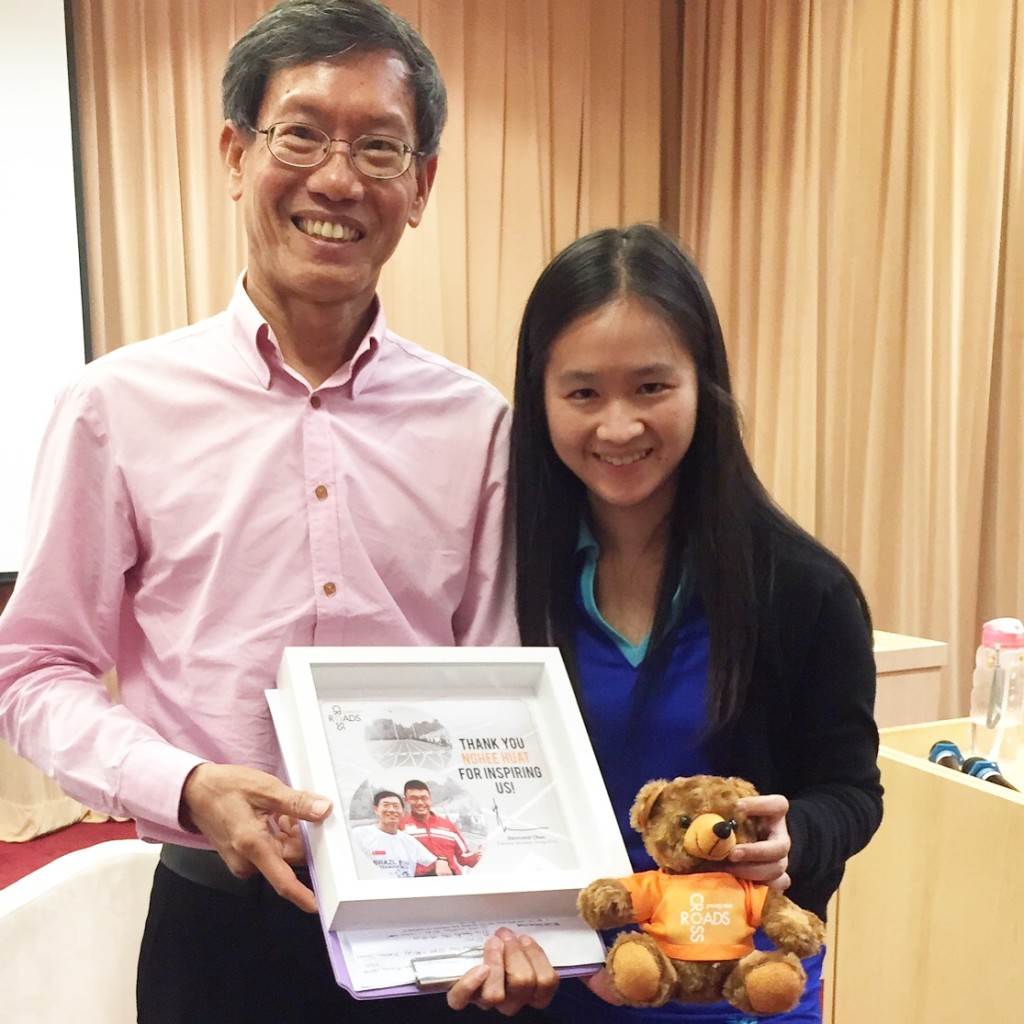
With Mr Lim.
Continued Li, “Sometimes slow running may actually put more stress on the joints compared to fast running though, because you are spending more time on the ground – but the faster you are running, the shorter the time on the ground.”
Lim also recounted his own personal experiences with having such injuries and discomforts. He said “If i detect something wrong, I will stop and walk for 5 to 10 minutes. If the discomfort or pain disappears then I will continue but if not I will monitor my body during the session and see how it continues to develop. If there is something abnormal with your body, you should listen to it so that it will not become a worse problem that will sideline you for an extended spell. I think that is why I have not developed any serious injuries during my many years of running.”

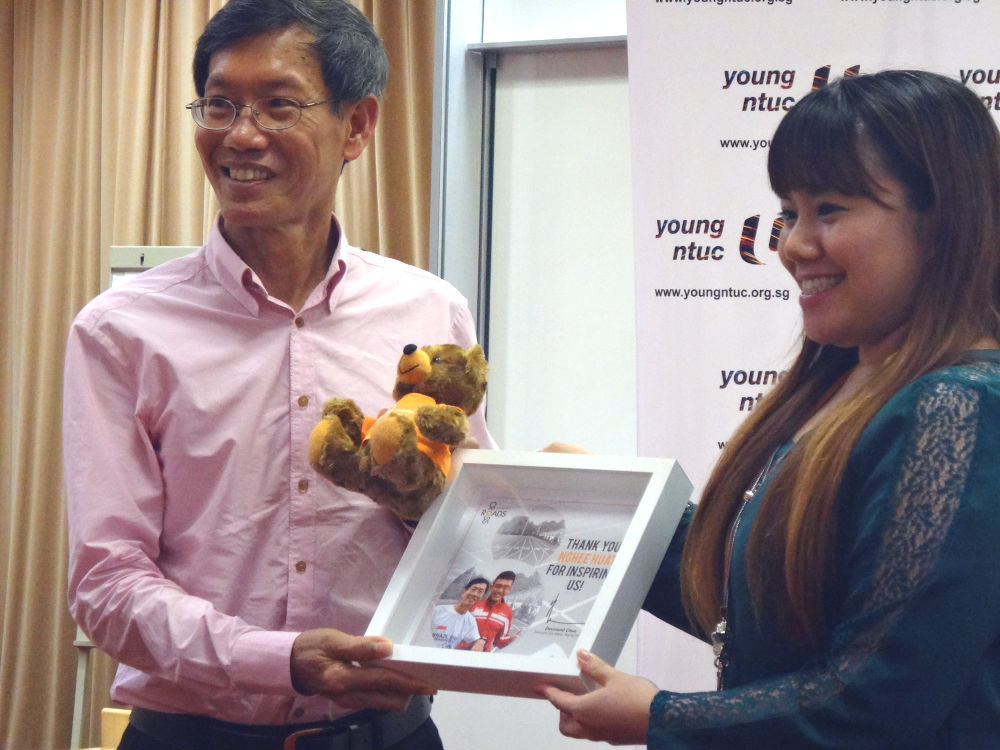
Leave a Comment